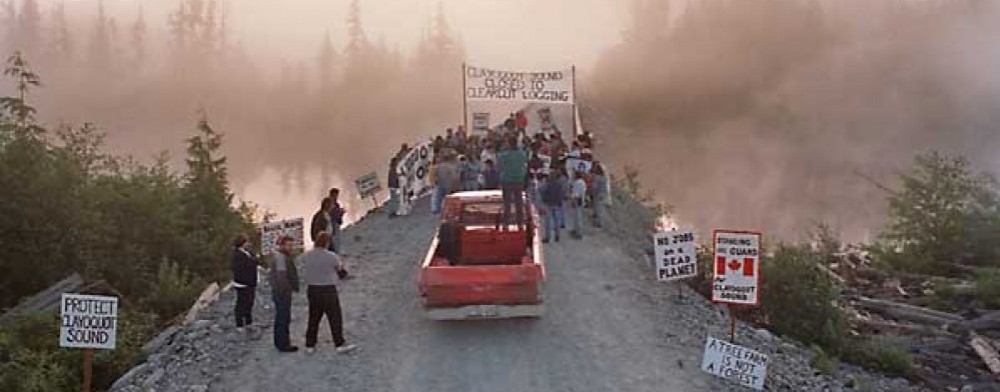August drips in fat oily droplets off the clusters of blackberries lining the railway. The air is thick with salt and the lingering smoke of fire pits. The berry studded bushes line the tracks owned by the BNSF Railway. The rail company runs a single-track mainline through the ocean side municipality of White Rock, British Columbia. How many times have I walked these tracks? Born and raised in White Rock, the railway runs through my childhood like a river. It cuts through my hazy childhood and rubs up against the shorelines of my adolescence. At night, the tracks will become the mise-en-scène for the Friday night rites of teenage-hood. Bonfires, flaming testaments to the romances, the comedies, and the tragedies of burning youth, will erupt, defiantly leaving their mark on this seaside no zone. Being a teenager in White Rock, a town where birthing and dying are the two main pastimes, is a unique balancing act. Perhaps one could argue that adolescence in general requires a particular understanding of equilibrium, however, there is something about this post-card sea-town, flung out on the west coast of Canada, that demands a particular gangly grace from its teenage residents.
What is it about this particular crack in the late august evening? The fissure that splits its way through the sweaty air? What is it about this particular emulsion of light, with its heady mixture of gold- almost too ripe for photography- that has me intoxicated, spouting sugar drenched stories of ‘home’? How did I come to pin ‘home’ inside scent- inside summer, and blackberries, and bonfire smoke? Inside the over used metaphor of the railway?- a trope grown rusty with the once dewy eyed lustre of progress, now scarred with the violence of colonialism.
The railroad’s steel caress, that smears itself across a landscape that my ruthlessly virile ancestors once injected with their world affirming metaphors of a new life, runs through the unceded territory of the Semiahmoo First Nations. I’m walking along a sprawling project in possession. To what extent are my stories of home fixed in such a project? Those stories that tell me where I’m from, where I “belong,” where I’m going. Those stories that make tidy little gardens out of unruly wilderness- that colonize mobility and liminality in favour of stasis and rootedness. Is my story like the railroad?: the great story making project of my forebears, who sought to unite a feral country from coast to coast, eclipsing the stories of others with their own.
I too have travelled coast to coast. I was sixteen, strapped in the back seat of my family’s minivan, making stories through the car window. It was one of those late august evenings maybe. Perhaps a bit like this one. A memory now lazy with haze and the bruised edges of dream. Somewhere in Ontario perhaps. A barbecue? A lake? Some pimped out Canadian kitsch dream, like the ones you see on postcards. The memory is faded now, torn and frayed at its edges, but I’ve still held onto it, an artifact from that time my parents trapped us in the car and drove us across this corrupted nation- puking my guts out on the dim future of my country’s shame. The nation’s body jellied and primped in the language of neoliberalism, ecological crisis, and silenced histories.
I fix my eyes on the point of convergence, where the tracks and the sea and the pine meet. Glassy eyed and sugar tongued, I let the last dregs of the sun blur my story until it is no longer distinguishable from the hazy evening. Why cling to the steel through-line of story when perhaps ‘home’ is more like an estuary? Choosing wilderness over cultivated plots, I turn back towards my parents’ house.

wow – you are indeed a fine and graceful writer, thank you 🙂
Thank you so much Erika.